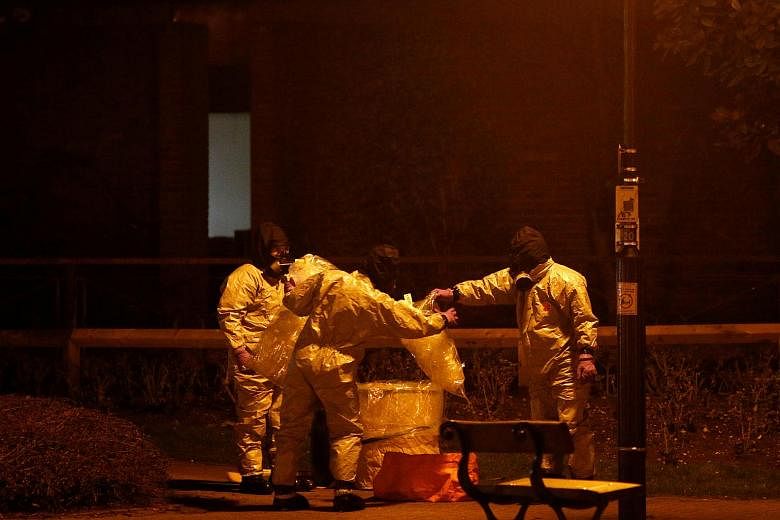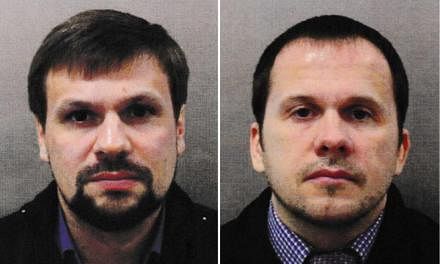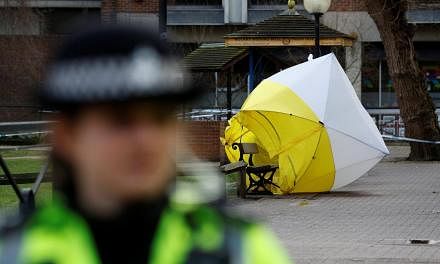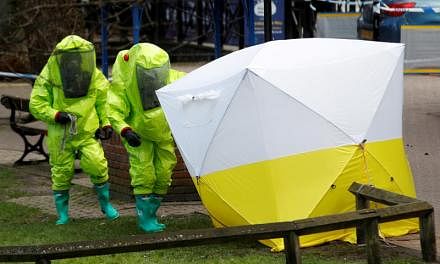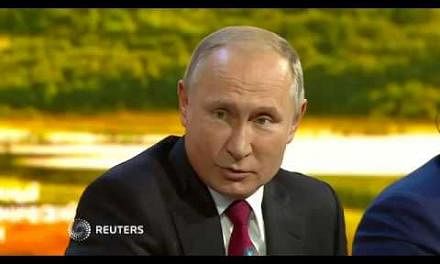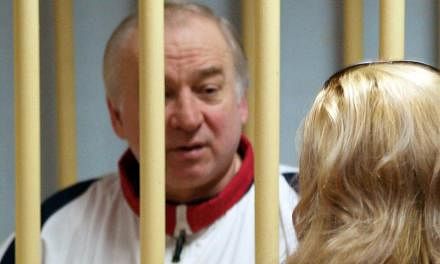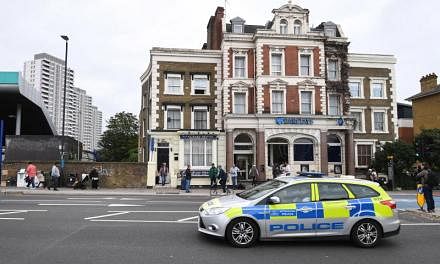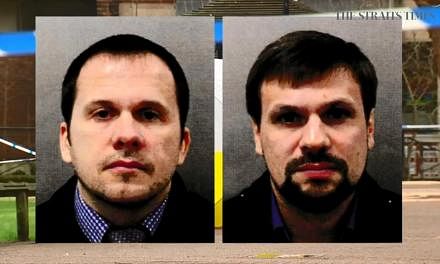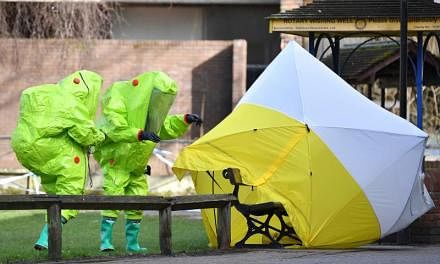MOSCOW (AFP) - As the finger of blame points at Russia over the poisoning in Britain of former double agent Sergei Skripal, alternative theories are being promoted in Russian media outlets, ranging from a plot to sabotage the country's upcoming presidential election to an attempt to ruin its hosting of this summer's football World Cup.
Despite British Prime Minister Theresa May saying the Russian government's involvement was "highly likely" due to the use of the Novichok nerve agent, many Russian people back alternative hypotheses.
"Russia is always blamed for everything," complained Lyubov Tarassenko, a 69-year-old pensioner in Moscow.
Her reaction, for the most part, reflects the mood of Russians following the spy scandal, who see their country as a victim rather than a guilty party.
"The British secret services are behind the poisoning, given the ideal way it was carried out using a substance presumed to have come from Russia," said Vladislav Dyatlov, a 46-year-old lawyer.
They want "to influence the result of the Russian presidential election," he said, adding: "Well, we want to elect our president ourselves."
The vote takes place on Sunday (March 18) and President Vladimir Putin is the overwhelming favourite to win another mandate.
"Russia has nothing to do with it," insisted Andrey Shishkanov, a 49-year-old doctor, who believe the affair is aimed at harming the election or the World Cup Russia is hosting.
Skripal and his daughter Yulia were found unconscious on a park bench in the southern city of Salisbury last week and both remain in critical condition in hospital.
The UK has demanded Russia provide answers on the March 4 poisoning.
After the identities of the victims were revealed, Kirill Kleimenov, a presenter on TV channel Pierviy Kanal commented sarcastically that "being a traitor is one of the most dangerous professions in the world".
Kleimenov went on to note that grave misfortune had befallen several Russians living in Britain in recent years, saying: "alcohol, drugs, stress, depression are inevitable ills linked to the profession of traitor which can provoke heart attacks, brain haemorrhage, traffic accidents or even suicide." He concluded: "Don't ever choose England as a country of residence if you are a professional traitor to your country."
TOO NEAT
One much-reported case of a Russian meeting a suspicious death in Britain in recent years was that of former FSB secret service operative Alexander Litvinenko, poisoned after his tea was laced with highly radioactive polonium-210.
Russian state TV on Sunday stated that Skripal "was no longer of interest to anyone" while a presenter pondered "is the British climate damaging to turncoats?"
The broadcaster also suggested Britain's secret service may have had a role in the case, given that the poisoning occurred "very close to the British military centre of Porton Down, which was carrying out research into" the nerve agent used.
"This poisoning is too neat, coming a few days before the Russian presidential election," said another broadcaster, NTV, in its evening bulletin.
While spies carry out their business across the globe "it is only in Great Britain that they are poisoned," the NTV presenter mused.
The influential speaker of Russia's lower parliamentary chamber, Vyacheslav Volodin, went further in denouncing what he termed "a premeditated action which constitutes a form of interference in the (electoral) campaign." "Great Britain and its authorities are responsible," he added.
Dmitry Kiselyov, star commentator with the state broadcaster and regarded as close to the Kremlin, suggested the goal was to spoil the World Cup.
"Why not poison Skripal and then afterwards use that to organise a boycott of the World Cup?" Kisselyov asked on Sunday.
Other media have taken a similar line, including the Moskovskij Komsomolets daily, which speculated about "the operation of British secret agents".
Business FM radio analyst Georgy Bovt said that "in the absence of proof" of Russian implication in the poisoning of Skripal, "Moscow has the moral right to break off diplomatic relations" with London.
